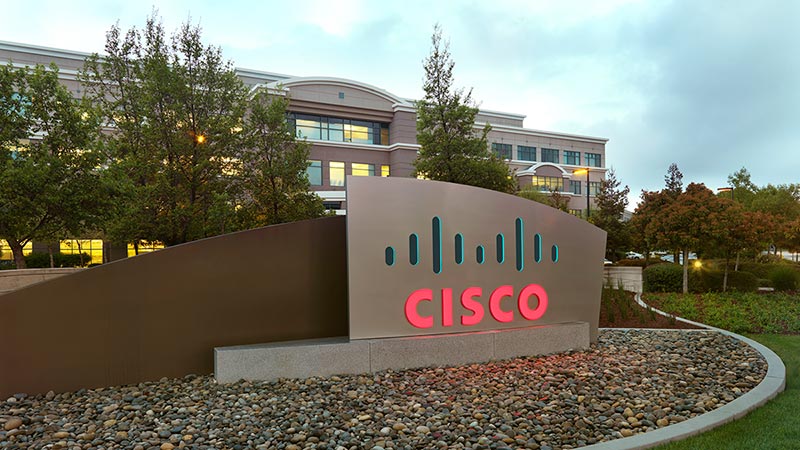WASHINGTON, D.C. -- June 10, 1999 -- The Internet Economy generated more than $300 billion in U.S. revenue and was responsible for 1.2 million jobs in 1998, according to a University of Texas study released by Cisco Systems, Inc. today. The findings are the most comprehensive measurement of the U.S.-based Internet Economy to date, and will be updated every three months at www.InternetIndicators.com. The study was done in partnership with the University of Texas' Graduate School of Business and the Center for Research in Electronic Commerce.
The study also found that Internet e-commerce is growing at a much faster rate than expected; that Internet workers are 65% more productive than non-Internet workers; and that companies with significant Internet revenues have a combined market value of over $2.4 trillion. In 1998, for example, total e-commerce exceeded $102 billion for U.S. based-companies; the average revenue per Internet employee is $250,000 vs. $160,000 per non-Internet business employee; and the top 20 companies measured have significant Internet-based revenues that have a combined market value of $2.4 trillion.
"The Internet Economy continues to create unprecedented growth opportunities for people, companies and countries on a global basis," said John Chambers, president and CEO of Cisco Systems. "For the first time, this study measures real jobs and economic growth directly tied to the emerging Internet Economy. When you consider the economic ripple effect that these jobs and economic growth drive worldwide, I believe the actual Internet Economy will usher in an Internet Century of profound and long-lasting change for business and people."
"If the Internet is going to impact future world economies, it's imperative to measure its real impact today," said Anitesh Barua, University of Texas At Austin, Graduate School of Business, Center for Research on Electronic Commerce. "We are pleased to partner with Cisco to develop the first Internet Economy Indicators based on in-depth interviews with more than 3,000 companies."
Rise of Internet Economy Tied to Internet Ecosystem
In a Washington, DC speech, Cisco Executive Vice President Don Listwin said the rise of the Internet Economy can be tied to an emerging "Internet Ecosystem" -- a new business model for Internet-connected businesses to serve Internet-connected customers.Companies in an Internet Ecosystem use the Internet as a competitive advantage to better manage operations, and extend market reach, while creating value for their customers and the entire ecosystem.
"Companies that embrace the Internet Ecosystem business model will thrive in today's Internet-centric world," said Listwin. "This new business model leverages hundreds of billions of dollars in Internet infrastructure, an asset available to any company in the Internet Economy.
Listwin also introduced the Internet Quotient (IQ), a qualitative measurement of a company's potential to be successful in the Internet Economy. The Internet Quotient is a blueprint for success in the Internet Economy.
The Internet Economy Indicators
The findings of the Internet Economy Indicators was compiled by interviewing more than 3,000 U.S.- based companies that generated all or part of their revenues from Internet products or services. The scope of the research was limited to companies with revenues directly from the Internet. It did not include companies generating products or services from the Internet companies (for example, professional services or utilities). The data was compiled using research reports from research companies, 10-K's, product literature and Web sites for the top 10 percent of the largest companies.Development of the Internet Economy Indicators was underwritten by Cisco Systems. They are derived from measuring Internet related revenue and job growth in four layers of the Internet Economy:
- The Internet Infrastructure - i.e. Internet backbone providers, ISP's, networking hardware/software, PC manufacturers, security vendors, fiber optic makers (Cisco, Intel, AOL).
- The Internet and Network Applications Infrastructure - i.e. Internet consultants, Web server software and other Internet applications, Multimedia applications, Web development software, search engine software, online training (Microsoft, Sun, IBM).
- The Internet Intermediary - i.e. online travel agents/brokerages, content aggregators, portals/content providers, Internet ad brokers (ETrade, Yahoo, Cnet)
- The Internet Commerce Indicator - i.e. online product sales, fees/subscription-based companies, online advertising, online travel providers (Amazon, eToys, WSJ.com).
The Internet Economy Indicators, to be measured on a quarterly basis, are the first phase of the Internet Economy Index ( expected to be released sometime next year. The Internet Economy Index will contain several indicators, in addition to jobs and revenue, and will present a quarterly snapshot of the Internet's economic impact. The findings of the report can be viewed at http://www.InternetIndicators.com.
This announcement and associated presentations can be viewed via Webcast at http://www.cisco.com/warp/public/750/ecosystem.html.
Cisco Systems
Cisco Systems, Inc. (NASDAQ:CSCO) is theworldwide leader in networking for the Internet.Cisco, Cisco Systems and the Cisco Systems logo are registered trademarks of Cisco Systems, Inc. in the U.S. and certain other countries. All other trademarks mentioned in this document are the property of their respective owners.






